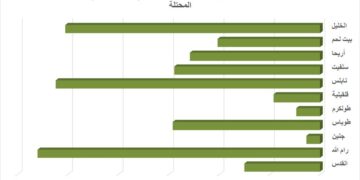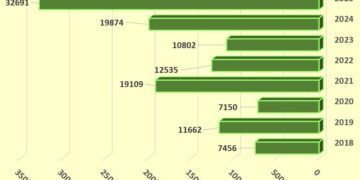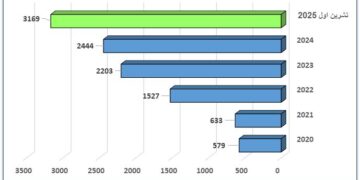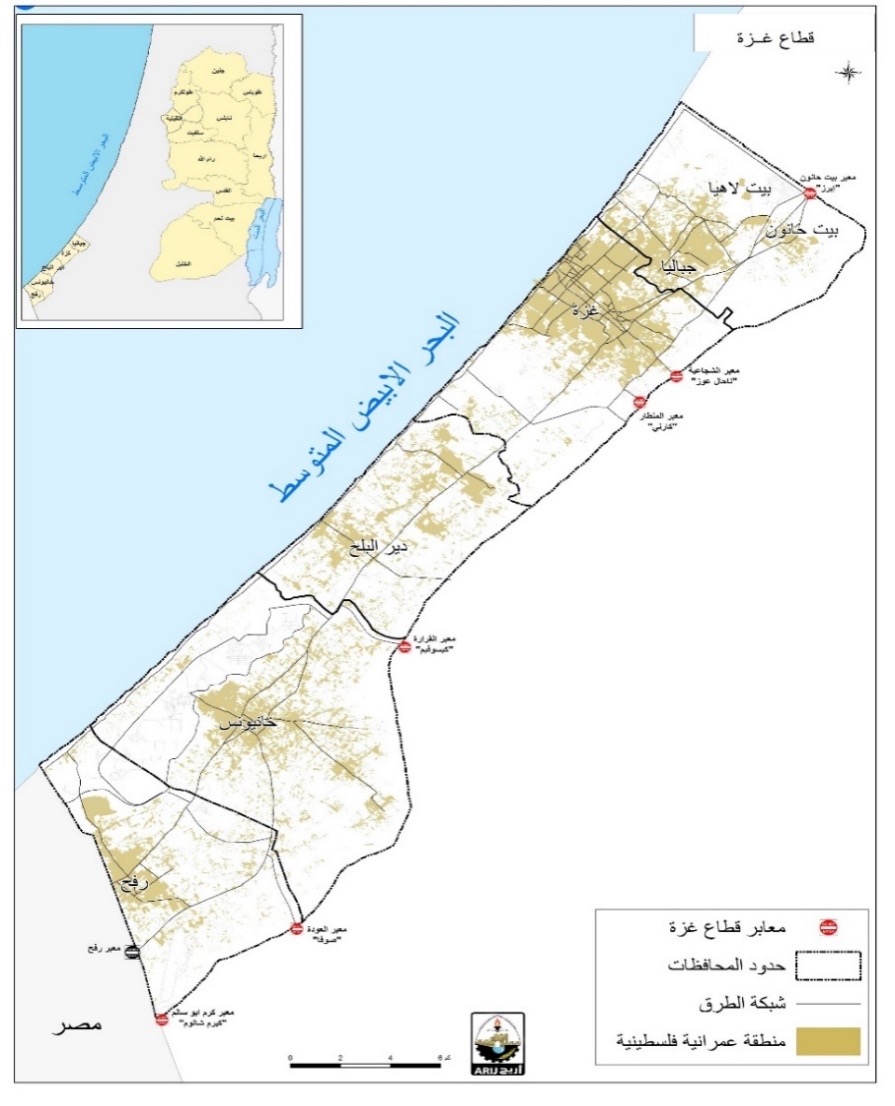Preamble
Facing the distressing images of bombings, destruction, killings, and the forced displacement of Palestinians since October 7, 2023, poses a significant challenge to the Palestinian people as it induces feelings of more misery and suffering, compounding the prolonged hardships they have endured due to the Israeli restrictions and the closure imposed on the Gaza Strip since 2007.
To speak about peace at this critical moment proves to be even more challenging, given the grim reality characterized of this war, which caused so far the loss of over 15,800 Palestinians; including 6,600 children and 4,300 women; the injury of more than 42,000 Palestinians, with over 70% of them being children and women and more than 7500 still under the rubble; the complete destruction of 103 government offices, 270 schools, 88 mosques, and 50,000 residential units; the extensive damage of 183 mosques, 3 churches, and 250,000 residential units; and the deliberate targeting of 20 hospitals, 110 health centers, and 56 ambulance cars[1]. This underscores the urgent necessity for a just and enduring peace which is not only crucial for the future of Palestinians and Israelis, but also imperative to break the cycle of violence.
During Netanyahu’s last 14 years as prime minister of Israel, his right-leaning government has actively put West Bank Annexation at the top of its priority and continued its policy towards crippling the situation in the Gaza Strip by all means.
One key strategy implemented by Netanyahu’s right government in the occupied West Bank, was to continue the of building and expanding of Israeli settlements and outposts; with great focus on occupied East Jerusalem and settlement blocs; In addition to infrastructure development, which included, but not limited to, the construction of Israeli bypass roads and road tunnels, with the pretext of easing the movement of Israeli settlers within settlements in the occupied West Bank and to the 1948 lands; while at the same time, fragmenting the Palestinian land into geographically noncontiguous areas or cantons, with exit and entry tightly controlled by Israeli soldiers; and accessibility to these roads limited to Israeli settlers use.
This has been coupled with efforts to impede Palestinian construction in “C” areas of the oWB and the displacement of entire Palestinian communities. Furthermore, Netanyahu’s right government has illegally designated vast areas in the occupied West Bank as Nature Reserves, Forests, national parks, settlement jurisdiction areas, closed military and Firing Zones and many other designations through military orders which later became off-limits to Palestinians; . Of particular concern is the unleashing of Israeli settler attacks against Palestinian civilians, their lands and properties, posing a serious threat to the stability of the West Bank.
The situation in the Gaza Strip has not been any different with Israel enforcing a tight closure on the area. This has been coupled by a contentious denial of basic rights entitled to the Palestinians in the Gaza Strip under international law, which encompasses a range of fundamental rights that have been established by various international agreements and conventions such as, but are not limited to, basic humanitarian considerations, access to essential services, and protection. Israel also continued its policy of imposing restrictive measures and closures, affecting the daily lives of Palestinians and their welfare.
The Two-State Solution is Evitable
The international community has always been calling for the two-state solution as the only solution for the Israeli-Palestinian conflict because it envisions the establishment of an independent and sovereign Palestinian state alongside an Israeli State, based on the borders of 1967. The United Nations, the European Union, and many countries, have expressed their support for the two-state solution as the preferred framework for resolving the conflict where key elements of this solution include negotiations over settlements, borders, security arrangements, the status of occupied Jerusalem, and the right of return of Palestinian refugees. The international community has always emphasized the importance of direct negotiations between Israelis and Palestinians to reach a mutually agreed-upon agreement; and various diplomatic efforts and peace initiatives have been undertaken by international actors to facilitate dialogue and advance the prospects of a two-state solution. However, the Israeli related settlement activities over the years of the Israeli occupation, posed and continue to pose an impediment to the two-state solution, and the Palestinian aspiration for an independent and viable state within the 1967 borders as it reduces the land available for a viable and contiguous Palestinian state, fragments the Palestinian territory, and creates challenges for the establishment of a geographically contiguous state.
‘Now or never’ for Israel-Palestine solution[2]
The Israeli war on the Gaza strip adds more challenges and complexities to the already existing and stands in the way of achieving a two-state solution. However, many continue to see it as the most and only viable path to achieving a just and lasting peace between Israelis and Palestinians, and to stop the circle of violence that has been going on for 60 consecutive days, in the West Bank and the Gaza Strip. Addressing the root causes of the conflict and finding a comprehensive resolution must be a priority.
A negotiated settlement based on international law and UN resolutions is seen as the most viable path to lasting peace, where in recent days, there has been an increasing and urgent global calls for the pursuit of a two-state solution, with many emphasizing that the present moment provides a favorable opportunity to actively engage in initiatives along that path. In his remarks on the Release of Hostages from Gaza, on 24 November 2023, The US President Joe Biden assured on the importance of the “Two State” solution now than any other time saying: “As we look to the future, we have to end this cycle of violence in the Middle East,”… “Two states for two peoples. And it’s more important now than ever[3].” This has also been coupled by the EU foreign policy chief, Josep Borrell remarks on 24 November 2023 in Barcelona for the 8th ministerial forum of the Union for the Mediterranean (UfM), 2023[4] saying: “Without a Palestinian state, there will be “no peace or security for Israel.”
The European Commission President, Ursula von der Leyen, also stated in an on-stage interview with POLITICO[5]’s Editor, on the 28th of November 2023, saying: ‘It’s now or never’ for Israel and Palestine Two-State Solution”[6]; “The time is now”. “It is almost dramatic that because of the terrible events in the Middle East, the two-state solution is much more probable than it was months or years ago.”
Furthermore, the UN Secretary-General, António Guterres’, while marking Day of Solidarity with Palestinian People, on the 29th of November 2023, said that: ”It is long past time to move in a determined, irreversible way towards a two-State solution, on the basis of United Nations resolutions and international law, with Israel and Palestine living side-by-side in peace and security with Jerusalem as the capital of both States,” expressing the urgent need to take action now in order to end the cycle of violence and build a future of peace, justice, security and dignity for all.
Despite the various international calls to move towards a two–state solution, the Palestinians are faced with harsh reality on the ground, 56 years of Israel occupation coupled with extensive efforts to undermine the achievement of a just and lasting peace with the Palestinians. Israel further maintained a principle of not taking steps that would achieve a two-state solution, either geographically or diplomatically, despite signed agreements, because it (Israel) at no time, wanted to cede its colonial activities (in all its forms) in the occupied West Bank or even lift the blockade on the Gaza Strip; but deliberately continued to profit from the ongoing political instability and insecurity, to further separate from Palestinians and deprive them their rights, against all principles of previous initiatives and signed agreements.
The truth is clear: Israel refuses to pursue a solution because; as it is no longer interested in a peaceful solution. For detailed information on the conflict and signed agreements, https://www.arij.org/atlas40/.
-
[1] Government Media Office- Gaza, 3 December 2023
https://t.me/mediagovps/1824
-
[2] Von der Leyen: ‘Now or never’ for Israel-Palestine solution https://www.politico.eu/newsletter/brussels-playbook/von-der-leyen-now-or-never-for-israel-palestine-solution/
-
[3] Remarks by President Biden on the Release of Hostages from Gaza
https://www.whitehouse.gov/briefing-room/speeches-remarks/2023/11/24/remarks-by-president-biden-on-the-release-of-hostages-from-gaza/ -
[4] Media Advisory: High Representative Josep Borrell co-chairs the 8th Regional Forum of the Union for Mediterranean in Barcelona
https://www.eeas.europa.eu/eeas/media-advisory-high-representative-josep-borrell-co-chairs-8th-regional-forum-union-mediterranean_en
-
[5] POLITICO, a Washington metropolitan area, U.S., based politics focused digital newspaper company covering politics and policy in the United States and internationally, with publications dedicated to politics in the U.S., European Union, United Kingdom and Canada, among others.
-
[6] Von der Leyen: ‘Now or never’ for Israel-Palestine solution
https://www.politico.eu/newsletter/brussels-playbook/von-der-leyen-now-or-never-for-israel-palestine-solution/
Prepared by:
The Applied Research Institute – Jerusalem














